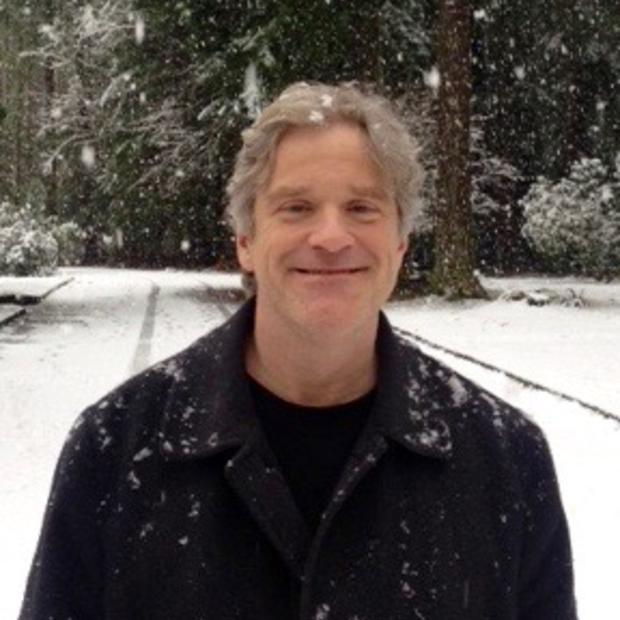Next week's tolling of the 520 bridge tracks with Elizabeth Kubler-Ross's five stages of grief. We begin with denial (only 20 percent of regular commuters have purchased a Good-to-Go pass); anger (this is all Olympia's fault); bargaining (take I-90 and, in exchange, God will make everything right); depression (don't bother to get out of bed. There's a friggin' toll on the 520 bridge); and, finally, acceptance (better shell out for that card doohickey.) As the Seattle Times' Susan Gilmore writes, "Yes, you'll have to pay to drive across the Highway 520 bridge, starting Thursday [Dec. 29]. The upside is that your commute may move a little faster. On the other hand, if you head over to Interstate 90 to avoid the new toll, your drive across Lake Washington may take longer than it used to."
The ripple effect of 520 tolling is difficult to gauge, although computer modeling and chin-scratching DOT brains are (mostly) skilled at traffic prophesy. "More than 100,000 cars drive across the 520 bridge on a typical weekday. Craig Stone, toll-division director for the state DOT, said Thursday that once traffic picks up after the holidays and tolls are in place, about 20,000 of those trips are expected to divert to I-90, some 5,000 likely will shift to Highway 522 around the north end of the lake, and 15,000 either will switch to transit or choose not to make the trip at all," Gilmore writes. "That means extra traffic on I-90 will slow traffic on that bridge by about 5 to 10 mph, while on Highway 520, fewer cars there will speed traffic by up to 20 mph, according to DOT."
The payroll-tax-extension fight is emblematic of contemporary Washington, D.C. Reduce the public good to partisan talking points and pay no attention to that 99 percent behind the curtain. A boiling Joel Connelly writes in his Seattlepi.com column, "The standoff this week had one basic cause: The House Republican Caucus pulled the rug out from under Boehner. It was forced to back down only after taking fire even from the right-wing editorial page of Rupert Murdoch's Wall Street Journal. Having the Journal flay Republicans in Congress was the equivalent of [having] L'Osservatore Romano denounce the Pope."
For Republicans, the takeawy is sobering. They look like the obstructionists, the lesser angels who mostly side with the loons or the well-to-do. That's because the Tea Party faction has subsumed the sensible center. "Preserving energy-wasting light bulbs, de-funding Planned Parenthood clinics that serve poor women, eviscerating Clean Air Act provisions designed to protect children's health — this is the Tea Party gospel," Connelly writes. "The John Boehners and Fred Uptons have become its forcible converts. Rep. Dave Reichert, R-Wash., a hostage negotiator as King County sheriff, voted with GOP Caucus hostage-takers in blocking the Senate's payroll tax compromise." That's a particularly notable reference to Reichert, whose moderation on some high-profile environmental issues has often impressed Connelly.
Connelly can be forgiven one sin of omission, not recently mentioning former Idaho Sen. Larry Craig. As the Huffington Post's Dave Jamieson writes, Craig's post-scandal vocation centers on mine safety (or ensuring a lack thereof.) "Having left Congress after an embarrassing 2007 arrest, former Sen. Larry Craig (R-Idaho) has quietly re-emerged in Washington as a lobbyist working on behalf of the coal industry. According to his federal filings, Craig has registered to wheedle his former Capitol colleagues on the obscure but critical issue of mine safety," Jamieson writes. "It's an issue that Craig's new client, Murray Energy, knows all too well. The largest privately held coal company in the nation, Murray Energy owned a subsidiary that ran the Crandall Canyon Mine in Utah, the site of a tragic cave-in incident that took the lives of six miners and later three rescuers. The cave-in occurred in August 2007, just weeks after Craig was arrested for allegedly soliciting sex in an airport bathroom." Jamieson deserves writing plaudits for his pitch-perfect use of the word "wheedle."
"An intellectual is someone whose mind watches itself," Camus wrote. That's right: Nothing sounds smarter than a smarty-pants quote culled from the Internet. "The Internet is the Viagra of big business," Jack Welch said (just Google "quotes concerning the Internet," and there it is.) So, with Seattle teeming with urbanists of all shades, a compendium of inspired urban-related quotes is a required toolbox. In the Atlantic Cities, Seattle's Chuck Wolfe compiles his favorites. Print it out and start internalizing for the next zoning-board meeting. One of the most memorable is Cyril Connolly on walking: "No city should be too large for a man to walk out of in a morning."
Lastly, a seasonal reminder of what's really important in life (read: health and family.) The Herald's Sharon Salyer writes about Bob Clement, a beloved letter carrier who raced back to work after a double-lung transplant. Looking for inspiration? You'll find it here.
Link Summary
Seattle Times, "Start of tolling may speed up 520 commute"
Seattlepi.com, "Dim bulbs run the U.S. House of Representatives"
Huffington Post, "Larry Craig Lobbies on Mine Safety as Reform Slowly Dies"
Atlantic Cities, "Advice for Urbanists, circa 400 B.C."
The Herald, "A donor's lungs, a survivor's heart"


